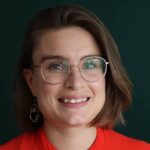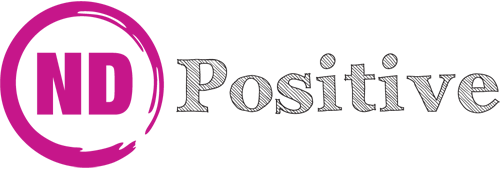 Name: Emily Horton
Name: Emily Horton
ND Type/s: Dyslexia
What do you do: Founder of inclusive communications consultancy More Diverse Voices
Where do you live: London
How did you start your day today? Do you have a morning routine? What do you have for breakfast, do think a good diet is important?
Now that I work from home I wake up and either go for a run or make it down to my local gym. There’s a lovely local park just around the corner from me and my runs there got me through lockdown. It even has a little pond with a family of turtles living in it.
I’ve actually never been a fan of breakfast. I wake up and I’m just not hungry, so I’ve accidentally been doing intermittent fasting for some time now.
How do you stay active? And what do you do to relax?
I fell in love with an app called FiiT over lockdown, it’s a workout app that has 25/40 minute workouts for all abilities. I really like having someone there telling what to do, otherwise I just wouldn’t push myself as hard. I relax by playing video games, I love RPGs – like the Witcher 3. I also read, write, cook, do yoga and have recently enjoyed rewatching all of the marvel films in chronological order.
Do you have a favourite word or phrase?
“Just that you do the right thing. The rest doesn’t matter.” – Marcus Aurelius, Meditations. I have it tattooed on my arm.
Have you read anything good recently? Is there a book that changed your life?
The Four Agreements and the Mastery of Love – Don Miguel Ruiz.
The School of Life – Alain De Botton
Invisible Women – Caroline Criado-Perez
Which 5 albums would you want to have with you on a desert island?
Joni Mitchell, Blue
Jon Hopkins, Singularity
Robyn, Honey
Hamilton the musical
KAYTRANADA, 99.9%
What is the best piece of advice you’ve ever received and who was it from?
Something along the lines of “life is not a race, everyone is in their own lane”. This was from my partner Matt 🙂
When you were young, what did you want to be when you were a grown-up? And what was your first Job?
A vet! I was obsessed with elephants and wildlife. My first job was working in the outdoor hiking store Blacks on the weekends. My first full time role after university was for PR agency Seven Hills.
What do you do now and how did you get into it?
I’m the founder of an inclusive communications consultancy called More Diverse Voices, which I founded after completing a fellowship with the social impact post-graduate programme Year Here. Before this, I spent two and half years as a financial journalist at Dow Jones and then about 4 years working in PR across the charity sector and the private sector. I’ve always been interested in the power of words, ever since I was little and found out I am dyslexic. Language is like a code, but for human interaction. One wrong word and you can bring someone to tears. But if you get them in the right order, with the right tone, you can also have incredibly difficult conversations where no one gets hurt in the process. I have also always found it interesting how words can exclude people. For example, I felt excluded from our education system, as it wasn’t really designed for someone like me to flourish without additional support. If I hadn’t been born into my family or given a tutor from a young age, I definitely wouldn’t have achieved the grades I did or have the confidence to apply for the head girl position of my school and then eventually Cambridge University. It makes me so upset to think about all the people who aren’t given those opportunities.
Creativity and thinking differently are often credited to neurodiversity. Would you say that is true? And if yes, could you give an example?
Yes absolutely! I know I connect the dots differently from other people. I think laterally, so see a problem not in a logically step by step way, but as a huge network of different interconnecting issues. It’s why I love working in social impact now because it’s all about solving problems in new and innovative ways. Also, when I’m focused on an idea, it means I have a huge amount of energy to get stuff done. A lot of creativity isn’t coming up with new ideas, it’s having the perseverance to try them out.
When you feel overwhelmed or unfocused, or have lost your focus, what do you do to get back on track? Do you have any hacks, tips or do you use any apps to keep you on track during the day?
All the time. My mind buzzes with ideas, sometimes I get overwhelmed by them and have to go for a walk around the park to calm myself down. I find I’m most productive first thing in the morning, so if I need to write an article or a big proposal, I try to get that done by 11am and then have a break. I also love Notion as a tool to help keep organised, particularly their timeline tool which helps me plan out projects and also helps me visualise timings and deadlines.
How does your Neurodiversity affect new relationships? This can be professionally, socially or romantically.
Professional – It’s hard to constantly have to re-explain why something might take longer for you (especially when it comes to writing) or why your work might have a few spelling mistakes, even though you proofread something 20 times. I still feel a sense of shame around being dyslexic, which I’m working to unlearn. I used to get really emotional about explaining things to my managers. I do think more needs to be done so that everyone can explain what they need to work at their best. This responsibility shouldn’t rest solely with the individual.
What makes you happy?
Walking to get a cup of coffee from my local coffee shop.
Helping others with the skill set I have
Learning something new
Spending time with my family, friends and my beautiful partner Matt
What has been your biggest achievement so far?
Setting up More Diverse Voices and launching it in front of an audience of hundreds of people. I had to learn a 5 minute speech off by heart (TED talk style). I wrote the entire thing myself and spent hours practicing it in front of the mirror. I was really proud of the outcome and managed to raise £4500 to help set my venture up.
Do you have a Positive ND message to the world?
Imagine you have a £5 million advertising campaign to spend on billboards all over the world, what would you say?
Be kind, as you never know what someone is going through.
OR
Real social change must be intersectional.
Final question – where can people find out more about you? Do you have a website and social media pages?
